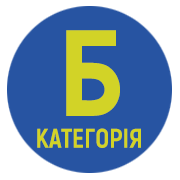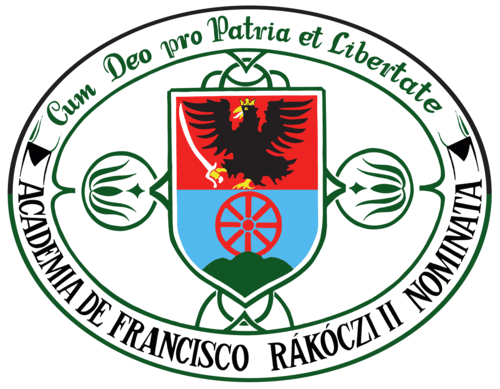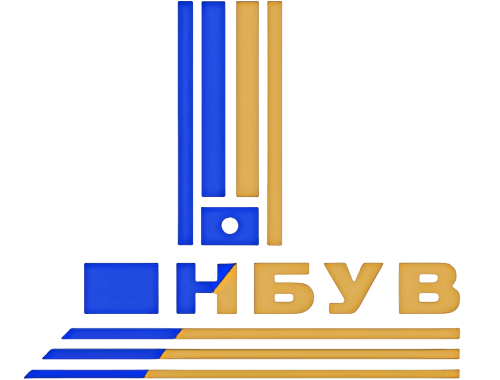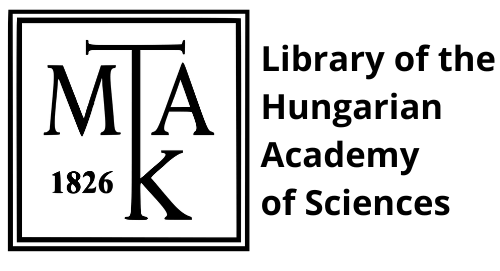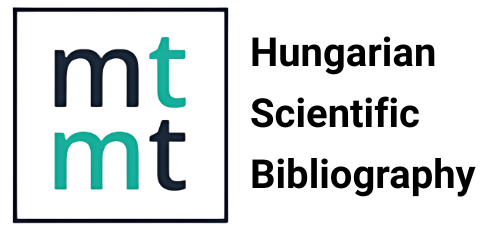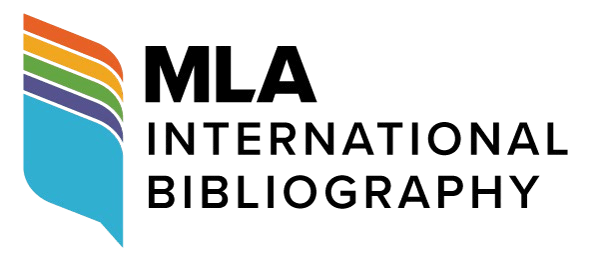Language awareness survey among university students
DOI:
https://doi.org/10.58423/2786-6726/2024-2-53-69Keywords:
language use, dialects, language attitudes, linguistic diversity, language varietiesAbstract
In this study we examined the linguistic awareness and dialect attitudes of university students studying at the University of Nyíregyháza. It is particularly important that the future teachers have a positive attitude towards the varieties of the Hungarian language and share their knowledge with their learners in an effective way. However, the results of various research studies show that in many cases, mother tongue education in schools does not build on a multi-standard approach to language varieties, and as a consequence, non-standard varieties are perceived more negatively than standard ones. The aim of this research is to find out what the university students in the research study know about the regional variation of language, conscious language use and how they view dialect speech. The study was conducted through an online questionnaire survey involving 70 respondents. As a starting point for the research, it was assumed that the respondents’ dialect attitudes and language awareness would be determined by their experiences at school, and thus negative attitudes towards dialect speech would be observed in their value judgments. It was also assumed that respondents would be less accepting of the occurrence of dialect phenomena in their own language use and in the speech habits of others in their locality.
The results showed that the majority of the students surveyed did not have a negative opinion of dialect phenomena, so the first hypothesis was not confirmed. However, the second hypothesis was partially confirmed, as far fewer respondents acknowledged the occurrence of dialect phenomena in their own language use than in the speech of the people in their locality. Overall, the majority of respondents to the survey have a positive attitude towards linguistic diversity and strive to use the language consciously. It is hoped that the students surveyed here will adopt the right approach to teaching about linguistic diversity in their teaching practice, thus positively influencing learners’ attitudes towards dialects and linguistic diversity.
References
AkH.12 2015.=A magyar helyesírás szabályai. Tizenkettedik kiadás [The rules of Hungarian spelling. Twelfth edition]. Budapest: Akadémiai Kiadó. (In Hungarian)
Clyne, Michael. 1992. Introduction. In: Clyne, M. ed.. Pluricentric Languages. Different Norms in Different Countries. Berlin–New York: Mouton de Gruyter. pp. 1–9.
Csernicskó, István 2008. Nyelv és azonosságtudat összefüggései a kárpátaljai magyar közösségben [Relationships between language and sense of identity in the Transcarpathian Hungarian community]. In: Fedinec Csilla ed. Értékek, dimenziók a magyarságkutatásban. Budapest: Magyar Tudományos Akadémia Magyar Tudományosság Külföldön Elnöki Bizottság. 153–170. o. (In Hungarian)
Csincsik, Anikó 2011. Vajdasági magyar nyelvhasználat egyetemisták körében [Hungarian language use among university students in Vojvodina]. Iskolakultúra 2–3: 45–58. o. (In Hungarian)
Dudics Lakatos, Katalin 2019. Kárpátaljai magyar pedagógusok nyelvjárási attitűdjének alakulása két felmérés eredményei alapján (2008–2018) [Development of the dialect attitude of Transcarpathian Hungarian teachers based on the results of two surveys (2008–2018)]. Magyar Nyelvjárások 57: 123–134. o. (In Hungarian)
Dudics Lakatos, Katalin 2020. Kárpátaljai magyar pedagógusok és tanítványaik metanyelvi ismereteiről [On the meta-linguistic knowledge of Transcarpathian Hungarian teachers and their students]. Magyar Nyelvjárások 58: 165–173. o. https://doi.org/10.30790/mnyj/2020/08 (In Hungarian)
Fazakas, Noémi 2016. Erdélyi magyar egyetemisták nyelvi és nyelvhasználati attitűdjei [Language and language use attitudes of Transylvanian Hungarian university students]. In: Kozmács István – Vančo Ildikó eds. Sztenderd – nem sztenderd. Variációk egy nyelv változataira. Lakitelek: Antológia Kiadó. 55–64. o. (In Hungarian)
Fishbein, Martin – Ajzen, Icek 1975. Belief, attitude, intention and behaviour. An introduction to theory and research. Reading. MA: Addison-Wesley [available in Hungarian: pp. 222–244, 253–255, Az attitűd információs alapjai [The informational basis of attitude]. In: Hunyady György ed., 1984. Szociálpszichológia. Budapest: Gondolat. 175–210. o.].
Grin, François 2013. Language Policy, Ideology, and Attitudes. In: Robert Bayley – Richard Cameron – Ceil Lucas eds. The Oxford Handbook of Sociolinguistics. Oxford: University Press. pp. 629–650.
Jánk, István 2017. Nyelvi hátrány és diszkrimináció az iskolában: A nyelvi szocializáció jelentősége a tanuló értékelésében [Linguistic disadvantage and discrimination at school: The importance of language socialization in learner evaluation]. Szociológiai Szemle 27/3: 27–47. o. (In Hungarian)
Jánk, István 2018. A nyelvi alapú diszkrimináció vizsgálatának módszertani korlátai és lehetőségei [Methodological limitations and possibilities of the investigation of language-based discrimination]. Magyar Nyelvőr 142/2: 150–169. o. (In Hungarian)
Jánk, István 2019. Lingvicizmus a Kárpát-medence négy országának gyakorló és leendő magyartanárainál [Linguistics among practicing and prospective Hungarian teachers from the four countries of the Carpathian Basin]. Magyar Nyelvőr 143/1: 31–46. o. (In Hungarian)
Kiss, Jenő 2002. Társadalom és nyelvhasználat [Society and language use]. Budapest, Nemzeti Tankönyvkiadó. (In Hungarian)
Kiss, Jenő 2009. A nyelvjárások és a dialektológiaoktatás Kárpát-medencei magyar szakos hallgatók szemével [Dialects and dialectology education through the eyes of Hungarian students from the Carpathian Basin]. Magyar Nyelvőr 133: 1–14. o. (In Hungarian)
Kovács, Edina 2014. A tanár szakos hallgatók nyelvi attitűdjeinek társadalmi nemi sajátosságai [The social gender characteristics of the language attitudes of students from teacher training courses]. Anyanyelv-pedagógia 7/2. https://www.anyanyelv-pedagogia.hu/cikkek.php?id=514 (Accessed: 12. 12. 2023). (In Hungarian)
Lakatos, Katalin 2010. Kárpátaljai magyar iskolások nyelvi tudata és attitűdje. Kézirat. Doktori értekezés [Language awareness and attitudes of Hungarian schoolchildren in Transcarpathia. Manuscript. Doctoral Dissertation]. Budapest, ELTE BTK. (In Hungarian)
Nagy, Zoltán 2015. Pályán lévő pedagógusok anyanyelvi attitűdjei [Mother tongue attitudes of practicing teachers]. In: Pusztai Gabriella – Morvai Laura eds. Pálya–modell. Igények és lehetőségek a pedagógus-továbbképzés változó rendszerében. Nagyvárad – Budapest: Partium − P.P.S. − Ú.M.K. 246–247. o. (In Hungarian)
NMTsz.=Kiss, Gábor ed. 2019. Nagy magyar tájszótár. 55 000 népies, tájnyelvi és archaikus szó magyarázata [A large Hungarian landscape dictionary. Explanation of 55,000 folk, regional and archaic words]. Budapest: Tinta Könyvkiadó. (In Hungarian)
Parapatics, Andrea 2016. Tények és tapasztalatok a dialektológiai ismeretek tanításáról [Facts and experiences about teaching dialectological knowledge]. In: Czetter Ibolya – Hajba Renáta – Tóth Péter eds. VI. Dialektológiai szimpozion. Szombathely – Nyitra: Nyugat-magyarországi Egyetem Savaria Egyetemi Központ – Nyitrai Konstantin Filozófus Egyetem Közép-európai Tanulmányok Kar. 509–517. o. (In Hungarian)
Parapatics, Andrea 2021. Pannon Egyetemen tanuló hallgatók nyelvi-nyelvjárási tudata [Language and dialect awareness of students studying at the University of Pannonia]. In: Humán tudományok: pedagógusképzés és tananyagfejlesztés. Budapest: Akadémiai Kiadó. (In Hungarian)
Parapatics, Andrea 2022. Nyugat-magyarországi beszélők nyelvi-nyelvjárási attitűdjei. Részeredmények [Language and dialect attitudes of Western Hungarian speakers. Partial results]. Acta Academiae Beregsasiensis, Philologica 1/1: 85–105. o. https://doi.org/10.58423/2786-6726/2022-1-85-105 (In Hungarian)
Presinszky Károly 2009. Nyelvi attitűdök vizsgálata a nyitrai magyar egyetemisták körében [Examination of language attitudes among Hungarian university students in Nitra]. In: Borbély Anna – Vančoné Kremmer Ildikó – Hattyár Helga eds. Nyelvideológiák, attitűdök és sztereotípiák. Budapest – Dunaszerdahely – Nyitra: Tinta Könyvkiadó. 241–248. o. (In Hungarian)
Sándor, Anna 2009. A nyelvjárási attitűd vizsgálata a nyitrai magyar szakos egyetemisták körében [Examination of dialect attitudes among university students majoring in Hungarian in Nitra]. In: Borbély Anna – Vančoné Kremmer Ildikó – Hattyár Helga eds. Nyelvideológiák, attitűdök és sztereotípiák. Budapest – Dunaszerdahely – Nyitra: Tinta Könyvkiadó. 231–239. o. (In Hungarian)
Sándor Klára 1999. Szociolingvisztikai alapismeretek [Basic knowledge of sociolinguistics]. In: Galgóczi László ed. Nyelvtan, nyelvhasználat, kommunikáció. Szeged: JGYF Kiadó. 133–171. o.
Sándor, Klára 2016. Nyelv és társadalom [Language and society]. Budapest: Krónika Nova. (In Hungarian)
Stewart, William. 1968. A sociolinguistic typology for describing national multilingualism. In: Fishman, J. A. ed. Readings in the sociology of language. The Hague: Mouton de Gruyter. pp. 530–545.
T. Károlyi, Margit 2002. A nyelvi tudatosság és attitűd vizsgálata a beregszászi főiskola hallgatóinak különböző csoportjaiban [Examination of language awareness and attitude in different groups of college students in Berehove]. In: Hoffmann István – Juhász Dezső – Péntek János eds. Hungarológia és dimenzionális nyelvszemlélet. Debrecen: Debreceni Egyetem Magyar Nyelvtudományi Tanszék. 329–338. o. (In Hungarian)
Trudgill, Peter 1974. The social differentiation of English in Norwich. Cambridge, Cambridge University Press.
Trudgill, Peter 1997. Bevezetés a nyelv és társadalom tanulmányozásába [An introduction to the study of language and society]. Szeged, JGYTF. (In Hungarian)
Zimányi, Árpád 2015. A nyelvjárások és a nyelvjárásiasság megítélése egyetemisták és főiskolások körében [Perceptions of dialects and dialecticity among university and college students]. Acta Academiae Paedagogicae Agriensis Nova Series: Sectio Linguistica Hungarica 42: 233–244. o.
Downloads
Published
How to Cite
Issue
Section
License
Authors retain copyright and grant the journal the right of first publication. The work is simultaneously licensed under a Creative Commons Attribution 4.0 International License (CC BY 4.0), which permits others to share the work with appropriate credit given to the author(s) and the initial publication in this journal.

